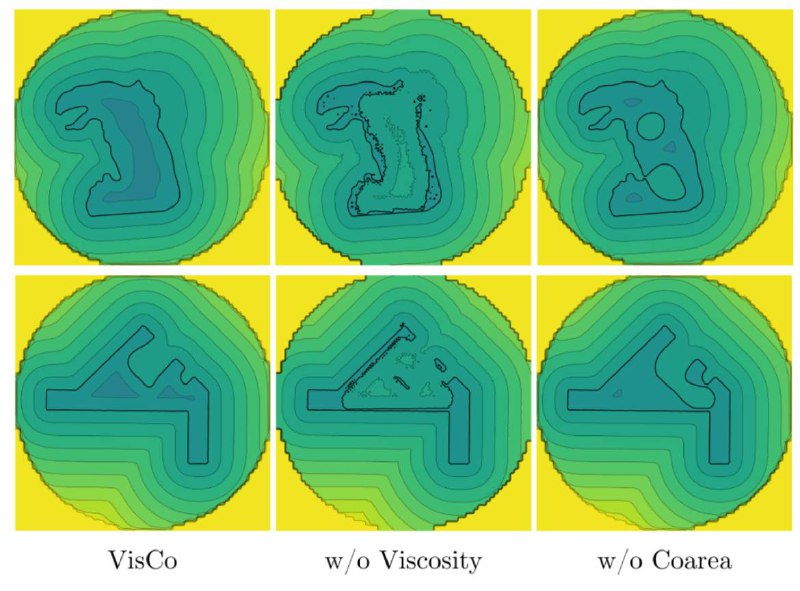group-telegram.com/gradientdude/341
Last Update:
VisCo Grids: Surface Reconstruction with Viscosity and Coarea Grids
The goal of this work it show that network-free grid-based implicit representations can achieve INR (Implicit Neural Representation)-level 3D reconstructions when incorporating suitable priors.
VisCo Grids is a grid-based surface reconstruction algorithm that incorporates well-defined geometric priors: Viscosity and Coarea.
The viscosity loss, is replacing the Eikonal loss used in INRs for optimizing Signed Distance Functions (SDF). The Eikonal loss posses many bad minimal solution that are avoided in the INR setting due to the network’s inductive bias, but are present in the grid parametrization (see attached Figure, middle). The viscosity loss regularizes the Eikonal loss and provides well defined smooth solution that converges to the "correct" viscosity SDF solution. The viscosity loss provides smooth SDF solution but do not punish excessive or "ghost" surface parts (see the Figure, right).
Therefore, a second useful prior is the Coarea loss, directly controlling the surface’s area, and encourages it to be smaller. The coarea loss is defined using a "squashing" function applied to the viscosity SDF making it approximately an indicator function, and then integrates its gradient norm over the domain.
VisCo grids have instant inference, and even with our current rather naive implementation are faster to train than INRs. Considerable training time improvement are expected with a more efficient implementation.
We tested VisCo Grids on a standard 3D reconstruction dataset, and achieved comparable accuracy to the state-of-the-art INR methods.
❱❱ Paper
❱❱ Code is coming soon.
@gradientdude
BY Gradient Dude

Share with your friend now:
group-telegram.com/gradientdude/341
